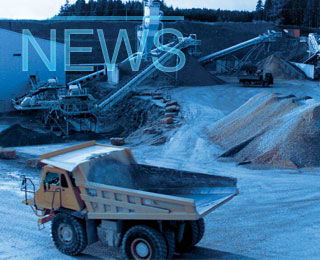In response to a federal court ruling and data from industry, the US Environmental Protection Agency (EPA) is proposing changes to its 2010 air standards for the US cement industry. The proposal would continue the significant emission reductions from the 2010 standards while providing industry additional compliance flexibilities, including more time to implement the proposed updates by extending the compliance date for existing cement kilns from September 2013 to September 2015.
In December 2011, the US Court of Appeals for the DC Circuit determined that EPA’s standards were legally sound, but asked the agency to account for rules finalised after the cement standards were issued. The proposed updates to certain emissions limits, monitoring requirements and compliance timelines are being made in response to this court remand and petitions for reconsideration of EPA’s 2010 final rule.
Based on new technical information, EPA is proposing to adjust the way cement kilns continuously monitor for particle pollution and would set new particle pollution emissions limits and averaging times to account for these changes. The proposed rule would not apply to kilns that burn non-hazardous solid waste; those kilns would be covered by other standards. The proposed extended compliance date would allow industry to reassess their emission control strategies in light of the proposed changes to the PM limits and monitoring methods. The agency will hold a public hearing if requested to do so. EPA will finalise the rule by December 20, 2012.
In response to the EPA's statment, Brian McCarthy, CEO and president, of the PCA said: “PCA welcomes the Portland cement NESHAP proposal released by EPA today to provide the cement industry necessary additional time for compliance with the proposed revised standards. Such time is essential to each cement plant¹s ability to complete any planning, engineering, and construction that may be necessary to comply with the standards. The Association also agrees with EPA¹s proposal to revise the emission standard for particulate matter.
“EPA¹s revised proposed rules are a win for the nation¹s economy, the environment and cement manufacturers. The proposed standards and extended compliance period are essential to preserving jobs at domestic cement facilities, and they support an American manufacturing industry that is critical to our nation¹s infrastructure and has been hit hard by the recession.
“PCA supports meeting the demand for Portland cement through environmentally and socially responsible business practices. PCA and its member companies are continually working to identify innovative ways to improve plant operations and implement state-of-the-art technologies to minimise emissions, promote a safe workplace, improve energy efficiency and conserve natural resources while cost-effectively producing a high-quality product.”
